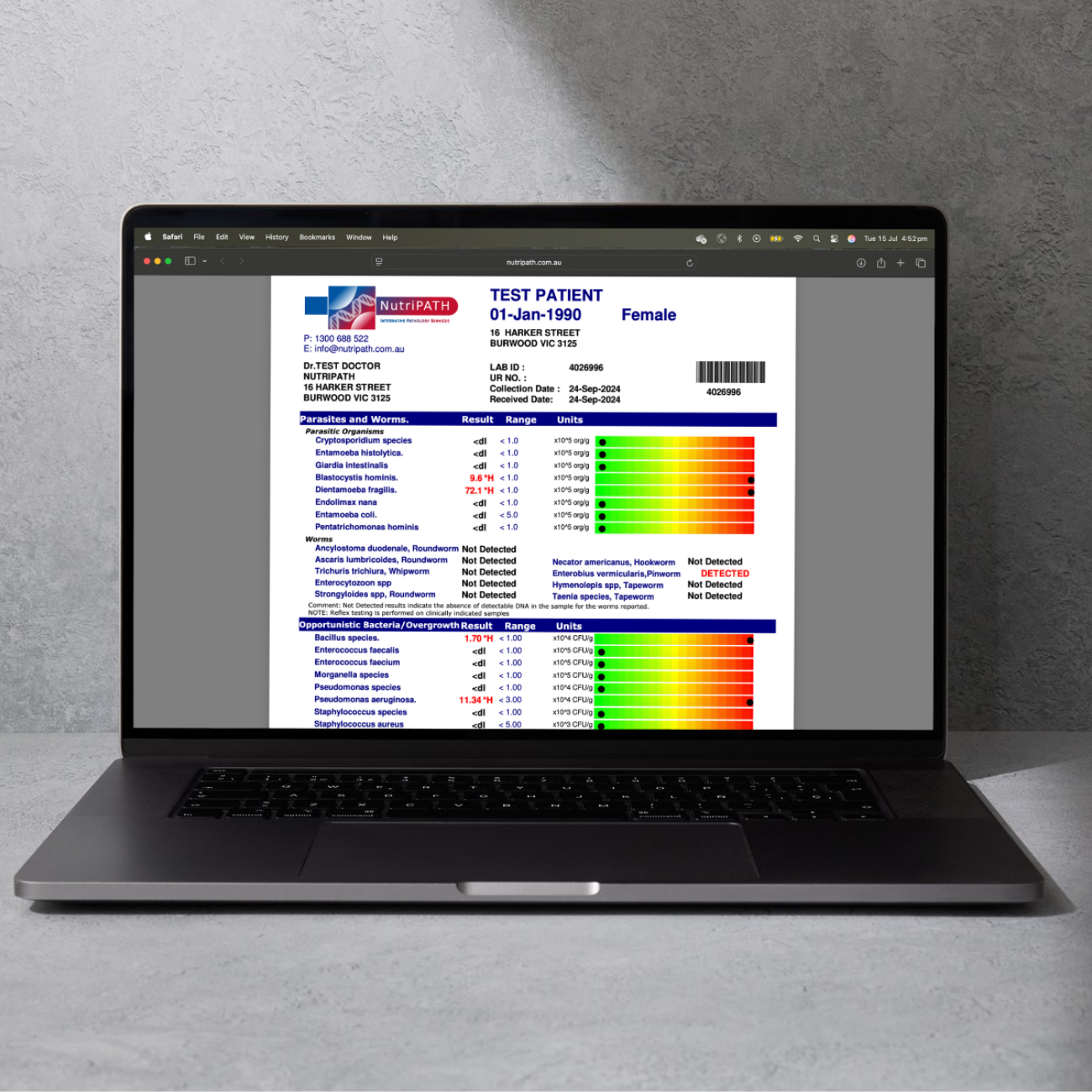How it works
Your test is send directly to you — Instructions & express reply postage sleeve are included.
Follow the included instructions, complete the test & use the pre-filled return sleeve to mail the test to the lab.
Results are emailed to you within 7-10 business days.

My Results
The Oral Microbiome Test provides a comprehensive analysis of the oral microbiota, profiling cariogenic and periodontal pathogens, opportunistic bacteria and fungi/yeast (e.g., Candida), and beneficial commensals that maintain oral ecological balance.
This advanced testing method offers clinicians valuable insights into a patient’s oral ecosystem, supporting the diagnosis and management of gingivitis, periodontitis, dental caries, halitosis and oral thrush, and informing care for systemic conditions linked to oral dysbiosis.
Common Questions
7 - 10 business days. Once we are sent them, we will email you and you will be able to book a consult with one of our doctors to discuss your results and build a personalised microbiome repair program.
Ideal for anyone with bleeding or tender gums, gum recession, recurrent plaque or tooth decay, tooth sensitivity, persistent bad breath, a coated tongue, mouth ulcers or oral thrush, and those diagnosed with gingivitis/periodontitis or peri-implantitis. If standard hygiene hasn’t helped—or your dentist has flagged periodontal pockets, repeated caries despite good care, suspected Candida, or halitosis—this test pinpoints the microbial drivers so treatment can be targeted.
The Oral Microbiome Test provides insight into the microbial ecosystem in you mouth, helping identify causes of:
- Bleeding gums when brushing or flossing
- Red, swollen, or tender gums
- Gum recession or “longer-looking” teeth
- Persistent bad breath (halitosis) or bad/metallic taste
- Frequent plaque and tartar build-up despite good hygiene
- Tooth sensitivity to hot, cold, or sweet foods
- Recurrent tooth decay/cavities
- Sore, loose teeth or pain when chewing
- Signs of gingivitis/periodontitis (deep gum pockets, bleeding)
- Inflammation or bleeding around dental implants (peri-implantitis)
- White coated tongue, burning mouth, or oral thrush
- Recurrent mouth ulcers or sores
- Dry mouth (xerostomia) and difficulty swallowing
- Denture-related irritation or stomatitis
- Pregnancy-related gum inflammation (pregnancy gingivitis)